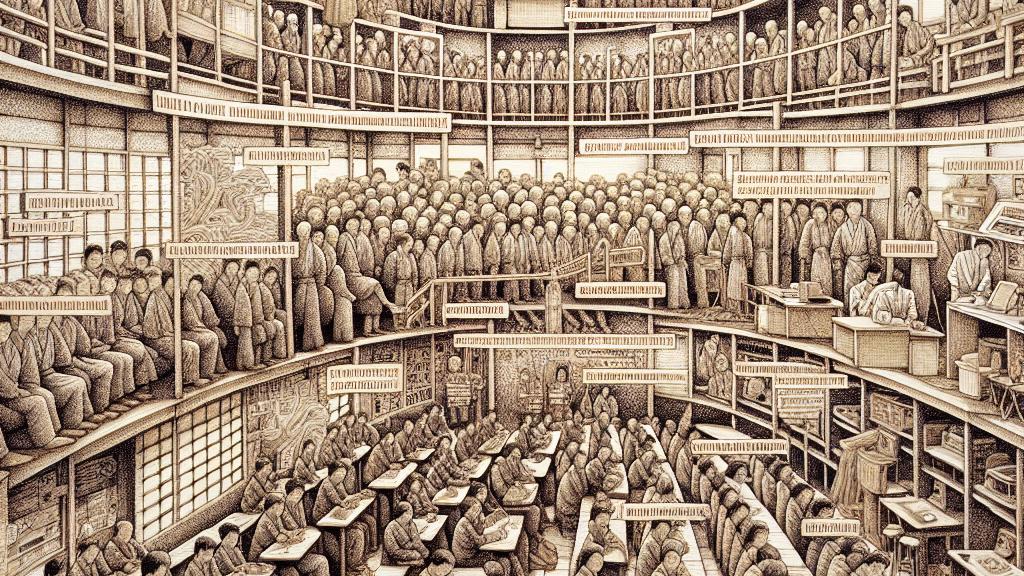Understanding Japan's Educational and Medical Challenges
Overview
- Unearth the hidden impacts of past scandals on current social dynamics.
- Investigate the 'butterfly effect' and its far-reaching consequences in Japan.
- Analyze the critical ties between political practices and public sector performance.

The Ripple Effect of History
In Japan, the infamous 'no-pants shabu-shabu' scandal resonates deeply, serving as a case study in the 'butterfly effect'—a perfect illustration of how minor incidents can spiral into major societal shifts. Picture this: a seemingly trivial event involving elite political figures and questionable morals not only captured headlines but also eroded the public's trust in institutions. As a direct consequence, the effects are felt in today’s educational landscape. Overcrowded classrooms are a common sight, where teachers struggle to engage students who range widely in age and learning ability. For instance, imagine a classroom of thirty students, many feeling lost and frustrated, while innovative teaching methods are stifled by rigid funding restrictions. Then consider healthcare, where budget cuts have resulted in decreased access to critical services; patients wait weeks for appointments, and advancements that could improve lives languish in the shadows due to lack of investment. When the public is skeptical of their leaders—due to past scandals—they become less likely to support educational reforms or healthcare policies needed for true improvement. Thus, the profound lesson is clear: even a single small act of corruption or negligence can create a chain reaction, leading to far-reaching consequences that affect generations. This history teaches us that the choices of today shape the realities of tomorrow, compelling us to act ethically and transparently in our political systems.

Loading...